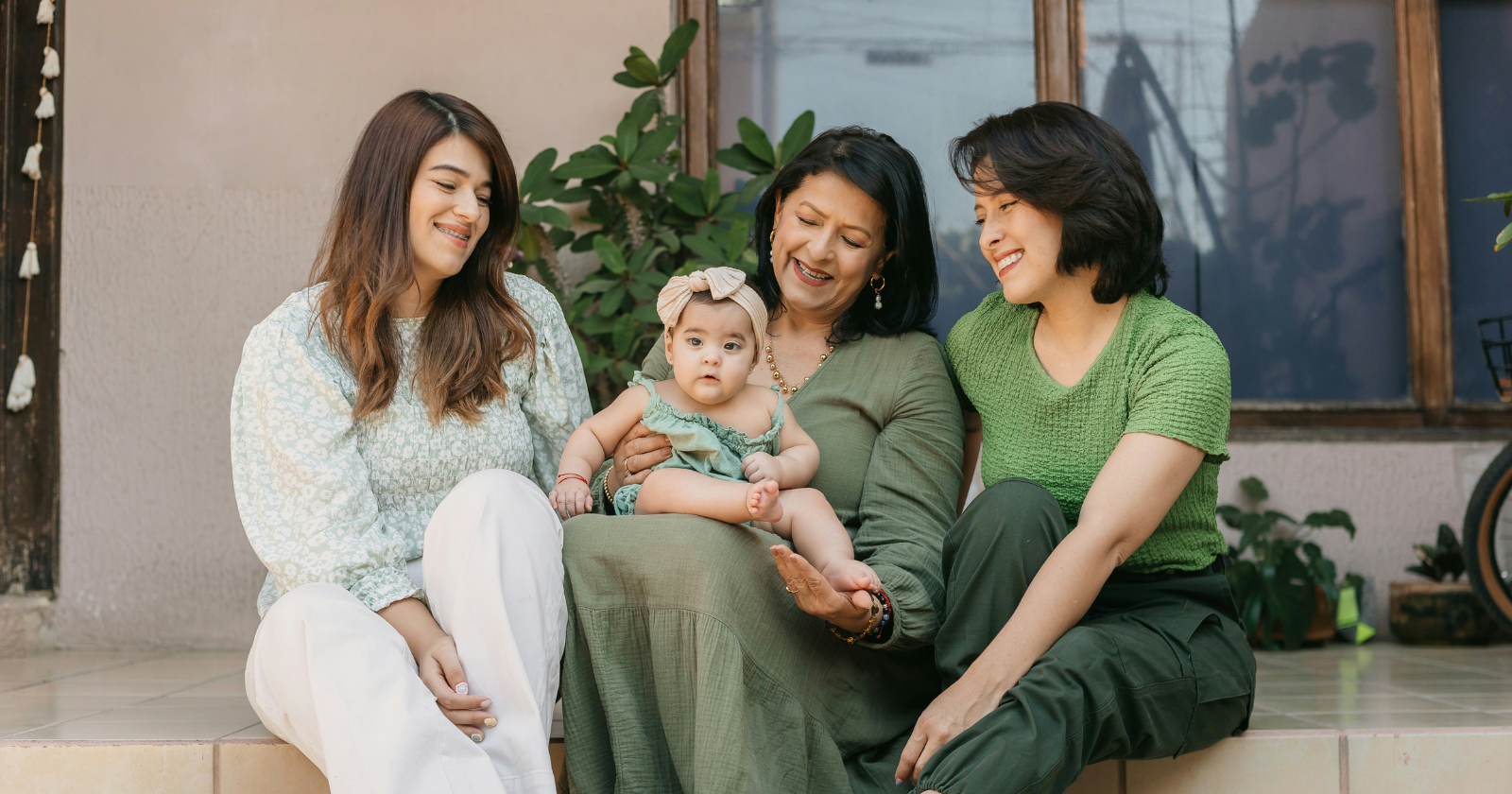Let’s be real: most of us love that our parents adore our kids. Watching grandparents and grandkids together is one of the sweetest sights.
But sometimes, the things boomer parents say—often with the best intentions—make us cringe inside. We don’t always correct them in the moment (no one wants family dinner to turn into a debate), but quietly, many of us wish certain phrases would just… vanish.
These comments don’t always come from malice. They’re usually habits carried over from a different parenting era. But they can land differently with kids today, and more importantly, they can undermine the values we’re trying to build at home.
So here’s the list—the seven things most of us secretly wish our parents would stop saying to the grandkids.
1. “Clean your plate—there are starving kids out there”
I get where this comes from. Boomer parents grew up with a scarcity mindset, sometimes with real food insecurity. But when they urge kids to polish off every bite, it teaches them to ignore their own hunger cues.
I’ve seen it firsthand with my daughter Greta. She’ll stop halfway through a meal and say, “I’m full.” My mom’s instinct? “Just three more bites!” But what I want Greta to learn is how to listen to her body, not override it.
Nutrition science supports this. Longitudinal and cross-sectional evidence shows that pressuring children to eat is associated with increased food avoidance and poorer eating habits over time.
A better approach? Encourage kids to try what’s on the plate, and trust them to decide when they’ve had enough. Wasting less food is a great lesson—but it’s one better taught through portioning and leftovers, not guilt.
2. “Don’t cry, you’re fine”
This one drives me up the wall. When Emil trips, skins his knee, and bursts into tears, the last thing he needs is to be told his feelings don’t matter.
I know our parents think they’re helping the child toughen up. But all it really does is shut down emotional expression. Kids learn that showing pain or sadness is somehow weak.
I’ve started responding differently. When Emil cries, I say, “That looked like it hurt. Want a hug?” He calms down faster because he feels seen.
Experts back this up. Dr. Dan Siegel, co-author of The Whole-Brain Child, explains that “naming emotions helps calm big feelings.” Simply acknowledging a child’s feelings goes much further than brushing them aside.
3. “Back in my day, we didn’t need screens to entertain us”
Boomer parents often view screen time as a symbol of laziness or bad parenting. And yes, we all know too much screen time isn’t healthy. But dismissing it entirely ignores the reality of modern life.
Screens are a tool—one we can use with boundaries. In our house, tablets come out for road trips, doctor’s office waits, and the occasional pre-dinner cartoon while I finish a Zoom call. The key isn’t pretending screens don’t exist, but teaching kids how to use them wisely.
When my dad sighs, “We just went outside and played!” I sometimes smile and say, “And they do that, too.” Because Greta and Emil love playgrounds and walks just as much as their tablets.
Balance matters. Making screens the villain only creates more conflict around them.
4. “Boys will be boys” (or “Girls should be nice”)
This one might be the hardest to hear. Little phrases that reinforce gender stereotypes may feel harmless, but they stick.
- 9 subtle signs someone grew up working class (even if they’re wealthy now) - Global English Editing
- People who become difficult to be around as they age usually adopt these 9 behaviors without realizing it - Global English Editing
- 8 things in life you should always say no to if you want to keep your self respect - Global English Editing
When Emil gets wild and climbs the couch, I don’t want him excused with, “Well, boys will be boys.” I want him to learn boundaries and safety. And when Greta gets called “such a nice girl” for helping clean up, I don’t want her to think being agreeable is her only value.
As noted in a Harvard Graduate School of Education report, “Even subtle gendered expectations can limit a child’s development and self-esteem.”
Our kids deserve better than outdated scripts. They deserve to see themselves as whole humans—capable, strong, kind, creative—without labels that box them in.
5. “You’re spoiled—you have too many toys”
Okay, yes. Kids today often have way more stuff than we did growing up. But telling them they’re “spoiled” every time they unwrap a gift or get a new Lego set just leaves them feeling shamed.
Instead of lectures, we’ve created simple systems: rotating toys so the playroom doesn’t get overwhelming, donating together twice a year, and encouraging gratitude rituals (like saying one thing they loved about the day).
When Greta received a birthday present from her grandparents and heard, “Wow, you’re spoiled,” she looked confused. I stepped in with, “You’re lucky to be loved. Let’s write a thank-you note.” Gratitude grows better from modeling, not guilt.
6. “When are you going to give me a hug/kiss?”
I know this one comes from love. Grandparents want affection. But pressuring kids to show it—especially when they’re not in the mood—sends the wrong message about bodily autonomy.
Greta is naturally affectionate, but Emil is more reserved. Forcing him to hug someone when he doesn’t want to only teaches him that his comfort doesn’t matter.
I’ve gently explained to my parents that it’s better to ask, “Can I have a hug?” and respect the answer. Sometimes Emil offers a high-five instead, which is just as sweet.
Teaching consent starts small. Kids need to know their “no” means something, even in family settings.
7. “That’s not how your mom/dad does it”
Few things make me grit my teeth more. When grandparents point out that we’re parenting differently—especially in front of the kids—it undermines us.
Comments like, “We didn’t use car seats for long,” or “We gave you cookies before dinner and you turned out fine,” might be meant as casual nostalgia. But to a six-year-old, it sounds like Grandma thinks Mom is wrong.
Parenting evolves. Safety guidelines, medical advice, and social awareness all change. Reminding kids that “we did it differently back then” only creates confusion.
I’ve learned to redirect quickly. “Things have changed, and this is what works for us now.” Kids thrive when they see the adults around them as a team, even if styles differ.
Final thoughts
Here’s the truth: most of the time, our boomer parents don’t realize these phrases hit us the wrong way. They’re repeating patterns they grew up with, often with love in their hearts.
But language shapes kids. The words they hear from adults—especially trusted ones like grandparents—become part of their self-talk. That’s why we quietly wish for more thoughtful phrasing.
As parents, we walk a tricky line: respecting our parents’ role while protecting the values we want to instill. Sometimes that means redirecting. Sometimes it means having a candid conversation after the visit.
Either way, the goal isn’t to police every word. It’s to create a family culture where kids feel respected, supported, and safe to grow into themselves.
And really, that’s what grandparents want too.



